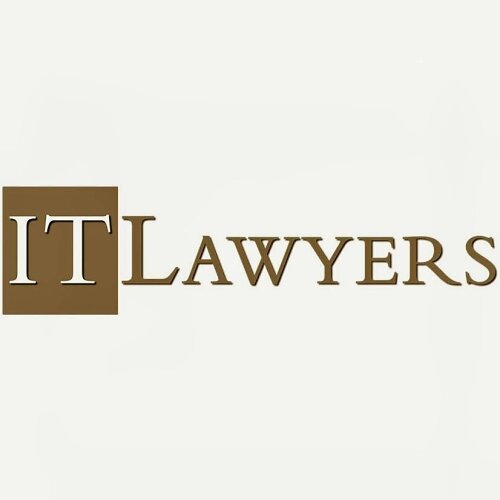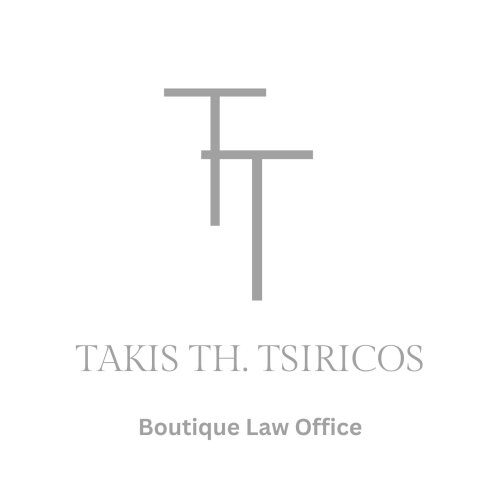Best E-commerce & Internet Law Lawyers in Greece
Share your needs with us, get contacted by law firms.
Free. Takes 2 min.
Or refine your search by selecting a city:
List of the best lawyers in Greece
About E-commerce & Internet Law in Greece
E-commerce and Internet Law in Greece encompasses various legal issues arising from online transactions and digital activities. This field addresses rights and obligations associated with electronic contracts, consumer protection, data privacy, intellectual property, and digital advertising. As part of the European Union, Greece adheres to broader EU legislation, including regulations such as the General Data Protection Regulation (GDPR), which significantly influence the country's legal framework. Greek law aims to facilitate the growth of the digital economy while ensuring user rights and commercial fairness.
Why You May Need a Lawyer
Engaging a lawyer specialized in E-commerce & Internet Law may be crucial in several situations, including:
- Starting or expanding an online business, requiring compliance with local and EU regulations.
- Drafting or reviewing terms of service, privacy policies, or digital contracts to ensure legal enforceability and consumer protection compliance.
- Handling disputes over domain names, intellectual property rights, or copyright issues involving online content.
- Navigating data protection and privacy laws to avoid penalties and breaches, especially under the GDPR framework.
- Addressing issues related to online defamation, cybersecurity breaches, or fraudulent transactions.
- Understanding digital tax obligations, such as VAT on electronic services.
Local Laws Overview
Key aspects of local laws relevant to E-commerce & Internet Law in Greece include:
- Consumer Protection Laws: These laws ensure transparency and fairness for consumers engaged in online transactions, mandating clear terms and sales conditions.
- Data Protection and Privacy: Under the GDPR, businesses must safeguard personal data, inform users about data usage, and have protocols for data breaches.
- Intellectual Property Rights: Greek law protects online copyrights, trademarks, and patents, which are essential for content creators and businesses.
- Electronic Transactions and Signatures: Greece recognizes electronic contracts and digital signatures as valid, ensuring that online agreements have legal standing.
- Tort and Criminal Law: These areas can address cybercrime, defamation, and unauthorized access issues, offering legal recourse and protection.
Frequently Asked Questions
What is the significance of GDPR in Greece for e-commerce businesses?
The General Data Protection Regulation (GDPR) imposes strict data protection and privacy requirements on businesses operating in Greece. Compliance is essential to avoid substantial fines.
How does one protect intellectual property online in Greece?
Intellectual property protection can involve registering trademarks, copyrights, and patents. Legal mechanisms exist to enforce these rights and address infringements.
What should be included in the terms of service for a Greek e-commerce website?
The terms should cover user rights, dispute resolution mechanisms, privacy policies, intellectual property rights, and conform to both Greek and EU regulations.
How are consumer rights protected in Greek e-commerce transactions?
The law mandates transparency, a right to withdraw from contracts, and protection against unfair trade practices, aligning with EU consumer protection standards.
Is it necessary to register a business in Greece for online sales?
Yes, businesses must comply with Greek commercial and tax registration requirements, even if only operating online.
What are the tax obligations for e-commerce activities in Greece?
E-commerce businesses must adhere to VAT regulations and report income in accordance with Greek tax laws.
How does Greek law address online defamation and privacy violations?
Laws provide for legal actions and remedies against defamation and breach of privacy, with potential civil and criminal liabilities for offenders.
What legal frameworks exist for electronic payments in Greece?
Payments are governed by the EU Payment Services Directive and local regulations ensuring secure and efficient transactions.
Are digital contracts legally binding in Greece?
Yes, digital contracts are recognized and enforceable, provided they meet criteria such as consent, capacity, and legality.
How can one legally use customer data in marketing activities?
Consumer consent is critical, and businesses must align with GDPR requirements when collecting and using data for marketing purposes.
Additional Resources
For further assistance, consider reaching out to:
- Data Protection Authority (DPA) for GDPR inquiries.
- Hellenic Consumers’ Ombudsman for consumer protection issues.
- Greek Chambers of Commerce for business advice and registration.
- Intellectual Property Office for rights registration and enforcement.
Next Steps
If you require legal assistance in E-commerce & Internet Law, consider the following steps:
- Consult with a legal professional specializing in e-commerce and internet law.
- Prepare all relevant documents, such as business records, contracts, and communications, to facilitate effective legal counsel.
- Contact relevant regulatory bodies for specific inquiries related to your legal needs.
Whether you are expanding a digital enterprise or addressing online legal challenges, informed legal advice will help safeguard your interests and ensure compliance with Greek and EU legislation.
Lawzana helps you find the best lawyers and law firms in Greece through a curated and pre-screened list of qualified legal professionals. Our platform offers rankings and detailed profiles of attorneys and law firms, allowing you to compare based on practice areas, including E-commerce & Internet Law, experience, and client feedback.
Each profile includes a description of the firm's areas of practice, client reviews, team members and partners, year of establishment, spoken languages, office locations, contact information, social media presence, and any published articles or resources. Most firms on our platform speak English and are experienced in both local and international legal matters.
Get a quote from top-rated law firms in Greece — quickly, securely, and without unnecessary hassle.
Disclaimer:
The information provided on this page is for general informational purposes only and does not constitute legal advice. While we strive to ensure the accuracy and relevance of the content, legal information may change over time, and interpretations of the law can vary. You should always consult with a qualified legal professional for advice specific to your situation.
We disclaim all liability for actions taken or not taken based on the content of this page. If you believe any information is incorrect or outdated, please contact us, and we will review and update it where appropriate.
Browse e-commerce & internet law law firms by city in Greece
Refine your search by selecting a city.














